Top Ten Tips to Know Before Booking Tickets and Taking the Train with Rail Europe
This spring I received a call from Rail Europe’s PR Team asking me if I wanted to go on a trip to Europe to try out everything they have to offer and share my experience with you guys, my lovely followers. I was told that I could pick any destination in Europe that Rail Europe trains service. {Cue jaw-drop} A trip to Europe to share my experience traveling via trains? My preferred method of travel in Europe? Yes, please!
I soon discovered that it’s not easy to choose where to visit in Europe because there are SO MANY fabulous destinations that Rail Europe serves (no surprise there). So my first mission was to decide where to go—Rail Europe offers service basically everywhere! France, Britain, Luxembourg, Switzerland, Germany, Spain, Belgium, Italy and so many others. As soon as I saw Italy on the map though, I knew I had made up my mind.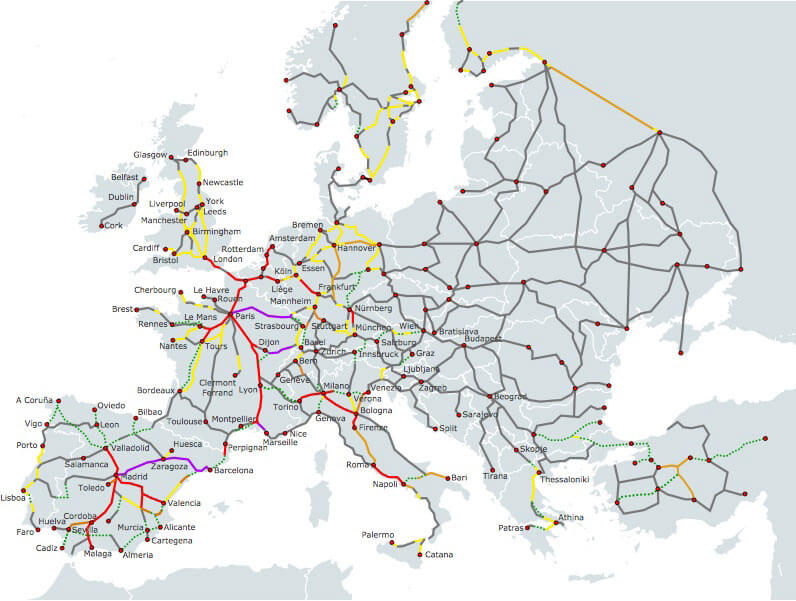
I personally prefer the train in Europe to any other form of transport. You don’t have the same stress as air travel, you don’t have to basically undergo a strip search before you travel and you don’t need to be there 2+ hours earlier, ruining half your day. Instead you can enjoy panoramic views from the comfort of your seat and watch the whizzing landscape speed by as you’re transported from one city center to the next.
Traveling by train can be overwhelming-especially if you’ve never done it before. There are multiple train companies, different languages, different currencies-it can be pretty confusing. All the booking processes can seem pretty complicated too. In fact, it can be downright discouraging. My last trip (which wasn’t sponsored btw) I was completely overwhelmed when trying to book train travel between France, Belgium and England. Enter Rail Europe. Their user-friendly website offers maps, schedules and they are based in North America so everything is in English and dollars, so no surprises or hidden foreign transaction fees. They make it easy to book your own travel-you can even talk to their travel consultants who can assist you with museum passes and tours of the cities you’re visiting.
After traveling exclusively by train on my past trip (thanks Rail Europe for sponsoring!), I learned several things along the way that make taking the train a piece of cake. There are several things that you should know before you plan train travel in Europe that will help make your Europe trip drama free! Because taking the train can be a little confusing for first-timers, I’ve compiled some of my top tips to help you as you plan a jaunt through Europe. Here is my advice you should know before setting off on your train trip with Rail Europe.
Book in Advance
I’m a planner. Considering that I document even the most mundane of travel details for you all on this blog, I’m sure it comes as no surprise that I enjoy travel planning. Planning in advance offers several benefits. First, advance planning gives you the most flexibility because you have more options—seats, train times, destinations, etc. Plus, many trains still require that you have pre-printed tickets from the ticket office so you want ample time to ensure that you receive these documents before embarking on your journey.
And there are so many choices when choosing the right train that suits your travel style. Understanding what the ticket options are is the first thing to familiarize yourself with.
Understanding Ticket Options
First, there are different train classes—Economy, Comfort Class and Premier Class. As you can imagine, Economy offers the most value, Premier Class is for the most discerning traveler and Comfort is train talk for First Class.
Premier Class offers more legroom and spacious seating. Also, depending on what train you’re on you may receive complimentary meal service or enjoy privileged access to lounges in select train stations.
Comfort Class is a quieter and more spacious ride than Economy—the seats are wider and there is more legroom. Your accommodations may be in 5-6 person compartments or in airplane style seating (three across, separated by an aisle). Usually the seats are leather and have country specific outlets. Then, different trains offer different amenities. Usually, First Class isn’t significantly more expensive than economy so I always say it’s worth it. However, it is worth noting that Comfort Class tickets aren’t quite the same as First Class on most airlines.
When it comes to Premier Class and First Class while the upgrade may not set you too far back, the level of service may not be the same over-the-top luxury you may have come to expect in the skies—especially on smaller, regional trains. However, there is quite a range of services across train companies: some offer small niceties like free magazines while others offer full-blown concierge services. When booking your ticket, simply click the “details” button below the fare to see a description of what deluxe services you can expect. Also, be sure to find out what perks you’re qualified for like access to train station lounges before you arrive.
Finally, don’t let the words “Economy” or “Second Class” scare you off. This seating option is similar to Coach on airline tickets and seats are still very comfortable and offer the same stunning views and relaxing ride as First and Premier. Economy cars are always heated and air-conditioned and offer storage space for your luggage. Second class certainly doesn’t mean you’ll be seated with livestock, it is still a perfectly nice way to travel.
You should also realize that no matter what class you choose, there are still people wander about the cars and you should keep an eye on your belongings. When you go to the restroom, be sure to take your valuables and never leave purses, wallets or passports unattended.
Understanding Types of Reservations
When booking train tickets in Europe, you should also be aware that there are typically 3 categories of reservations—Reservations Required (this applies to most high-speed and overnight trains), Reservations Recommended (While reservations aren’t mandatory, Rail Europe includes a reservation for these tickets whenever possible), and finally, Non-Reservable (this applies when seat assignments are not available—think Long Island Rail Road or Metro North, fellow New Yorkers).
Depending on the length of your trip, you may be purchasing only a couple of tickets, but if you’re lucky enough to be in Europe for an extended period of time with many destinations planned, you may wish to purchase a Rail Pass.
While individual train tickets are the way to go if you’re only going to 1-2 cities, if you’re planning to visit more, a Rail Pass is the way to go. Rail Passes allow you to travel on trains without a set itinerary in advance. You can choose your pass for a set number of days, type of train or geographic area. Do note though that depending on the country, you may need to purchase seat assignments for an additional cost on certain trains.
For more information, visit the Rail Passes Explained page.
Plan Ahead
Unless you have a mobile data plan abroad, you’ll want to remember to find out all the information about your train that you need before you get to the train station because many don’t have free wi-fi. Also don’t assume you’ll be able to ask a Station employee what to do. At most of the train stations we were in, it was quite difficult to find train employees, especially on the tracks. And ticket collectors (if there is one on your train, don’t always have the best answers, if any at all).
I suggest knowing not only the name of your destination station (some cities have three different train stations all slightly different), but also the train schedule of stops (they don’t make announcements all the time and if they do they are often not in English). Knowing the order of the stops let’s you know when you need to prepare to disembark. On many trains, the aisles are quite narrow and you may have to weave in between some people and their baggage to exit (not always an easy feat). Knowing precisely when you need to exit is key because the trains don’t stop for long. If you wait too long, you may miss your stop.
I recommend downloading the Rail Planner app. Though, remember that this app requires wi-fi or a data plan, so download it in advance.
Bring All the Necessary Documents
It goes without saying that you need to bring a valid passport for train travel in Europe, but you also need to remember your train tickets. Unlike airline travel, not all train tickets can be issued electronically or printed at home. Therefore, it is very important that before you leave that you understand what tickets you need.
There are three options of tickets offered: paper tickets, print at home e-tickets or print at the station e-tickets. Paper tickets are printed at Rail Europe and shipped to you before your departure. Do not forget these because you won’t be able to take the train without them. If tickets must be printed at home they may be issued as a PDF, which you must print before the train, or you may be given an e-ticket code, which you can actually just show on the train along with a photo i.d. (this is the case on the Italo train I was on). Not sure why they say print at home and there is nothing to print, but that’s how it is. Finally, you may get an e-ticket to print at the station. In this case all you do is go to the self-service kiosk (like at an airport) and print your pass prior to your train’s departure.
Make Friends
While we did not always find train station employees when we needed one, when we did there were a few occasions when we were given incorrect information. So even if you think you know where you’re going, it never hurts to double-check with other travelers around you. It’s a good icebreaker. We met so many lovely people on our travels when we were rushing to connections together.
Booking Connecting Tickets
And speaking of connecting trains, it’s quite common (especially if you’re visiting smaller towns) for your itinerary to involve connecting trains. And that may sound annoying, but I assure you, connecting trains are really quite easy. You just want to be sure to give yourself enough time in between trains to make your connections. If you book through the Rail Europe website, when browsing for fare schedules, they’ll only match itineraries with feasible connections (which is crucial). That said, it isn’t uncommon in Europe to have connections departing from different train stations that are reachable by a short walk or public transportation so be sure to carefully read your tickets. Rail Europe takes this into account also when compiling a schedule of connecting trains for its customers.
If you Do Miss Your Train…
Let’s face it, $#!* happens! It’s hardly unheard of to miss a connection or miss a train altogether. First, it’s important to know that each train ticket has its own exchange and refund rules so you have to pay attention to those when booking. Rail Europe is the middle man between the train company and the consumer-they aren’t actually a train company. And Rail Europe makes this easy on its website. These terms can be viewed when you select your fare for train tickets, or for tickets and passes put in your shopping cart. Rail Europe can’t change these terms as set by the trains so it is important to pay attention to these.
Generally, there are three types of fares. Non-Flexible (you can’t change or get a refund—these will be the cheapest fares usually), Semi-Flexible (you can change these for a certain amount of days before departure or for a small penalty) or Flexible Fares (these are usually the most expensive but allow you the most flexibility without penalty). Be sure you check what type of ticket you have before you leave.
Do note though that if you miss a train due to a delayed connection, that this is a different situation. If this happens, have the conductor endorse the ticket to say there was a delay. This is usually sufficient proof at the next station to approve a free transfer to the next available train. However, if you missed your connection because you left the station or had one too many cocktails, don’t expect them to be quite as lenient. However, if you have an open rail pass then you may be fine.
Also, you may want to consider adding Rail Europe’s Protection plan to you booking, which allows you to have that peace of mind if you need to change your plans—no questions asked. You can read more about Rail Europe’s Rail Protection Plan™.
Stay Vigilant
Nothing ruins a vacation like losing your belongings. So do yourself a favor and don’t become a victim. Even in Premier Class, watch your stuff. Be alert on the train, while you can certainly enjoy the views and relax, keep your wits about you.
Be aware of when your stop is coming up. Remember you may not be the last one. Trains stop very quickly and in some smaller stations, doors may not open on every car. If you have stored your baggage in overhead compartments you’ll want to make sure you retrieve them before the train stops and get to the exits in advance.
Arrive Early
Rail Europe recommends arriving at least 30 minutes before your train departure. Since I’m a nerd, I usually got there about 45 minutes early. If you have a rail pass, you’ll need to activate it at the ticket window before boarding. If you have a print-at-station ticket, you’ll need to find a self-service kiosk to print it. If you have a print-at-home e-ticket, you’ll need to either print your ticket confirmation at home or be sure that you have the booking code. You also need to validate your tickets for certain trains so arriving early will give you time to do this as well. Arriving early also gives you time to find the right track and get your baggage up all the stairs…which brings me to my next point.
Pack Light
From one over-packer to another, I can’t stress this enough. Train stations in Europe are all about the stairs. If you overload your suitcase, you’ll be dreaming of escalators and elevators (as I was) and I promise you, you won’t find ‘em. Not only will you have to drag your bag up and down stairs to get between platforms but once your train arrives you’ll need to be able to lift it quite high onto the train. And there aren’t employees around to help you usually so don’t count on their help. But then comes the hard part! Many trains require you to store your baggage above the seats in overhead compartments—and this is where things get ugly if you’ve got a bag that weighs the same as you do!
Follow Directions
It may sound simple enough but be sure to read all the paperwork that Rail Europe provides you. If you get a Eurail Pass, be careful filling it out. If you fill out an incorrect date, you’ll lose that day that you already paid for. You can’t change it or it will be considered fraudulent. Similarly, be sure to fill out your Eurail pass before you get on the train. Fill out the date and also the station you’ll be coming from and going to. You otherwise may be fined if someone comes on to check tickets.
Be Prepared
While many of the trains these days either have cars with food available for purchase (or First Class may even bring you snacks and drinks to your seats) we ran into a couple of occasions where we thought we would have more time in between connections and due to delayed trains we didn’t have as much time as we thought. We were very happy to have had a few snacks in our bags.
I hope you found these tips helpful. I took notes throughout my journey and tried to come up with hints that you would find useful and also explain some of the confusion that comes with train travel because once you know what you’re doing, train travel in Europe is amazing.
Rail Europe Information
For more information about Rail Europe, visit its Website. You can also find Rail Europe on Twitter, Instagram and Facebook.
*Disclosure: As always, I am very up front about sponsored travel. Rail Europe paid for my trip to Europe, including my flight, tours and I was given a modest allowance for meals. Opinions herein are always my own-you can’t buy the love. I wasn’t paid to write anything in specific about the company, just about my own personal experience.

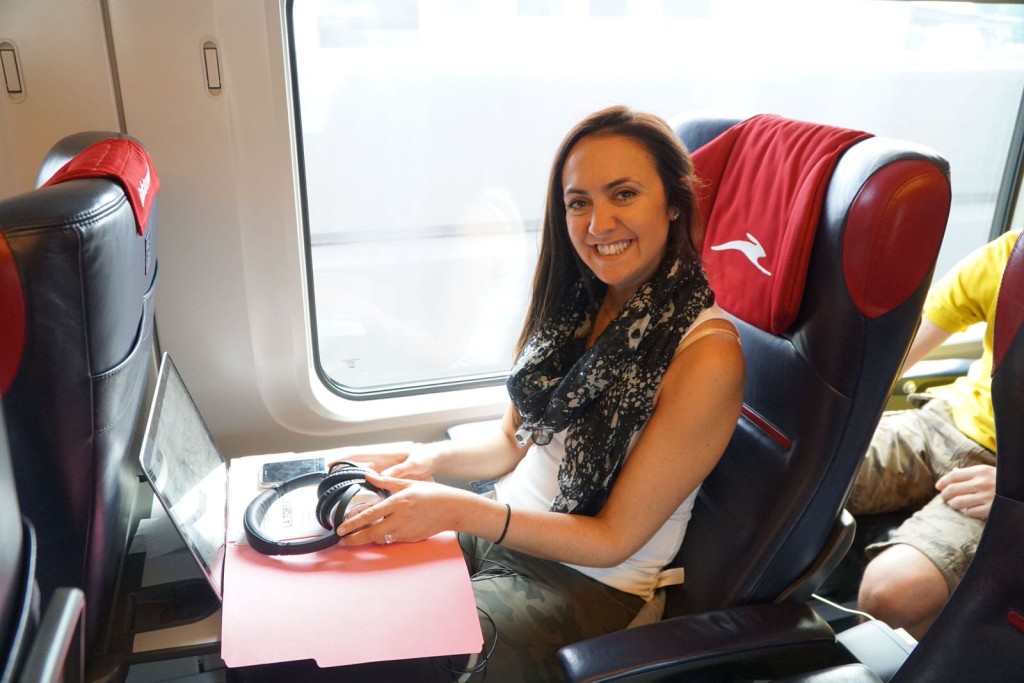
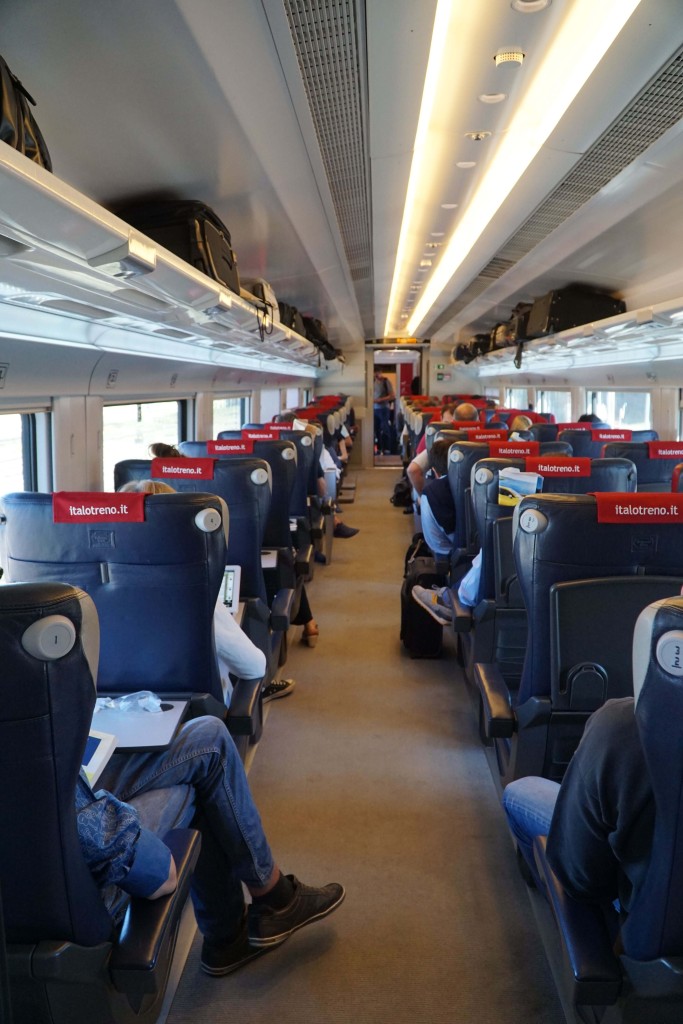
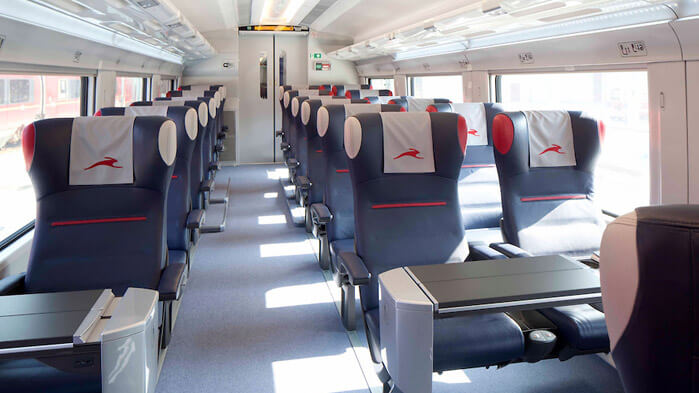

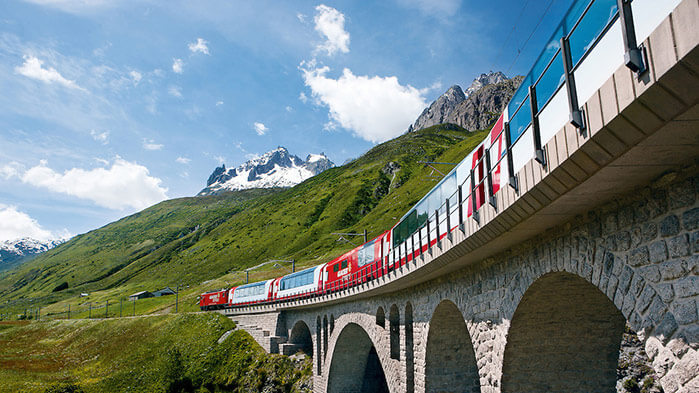
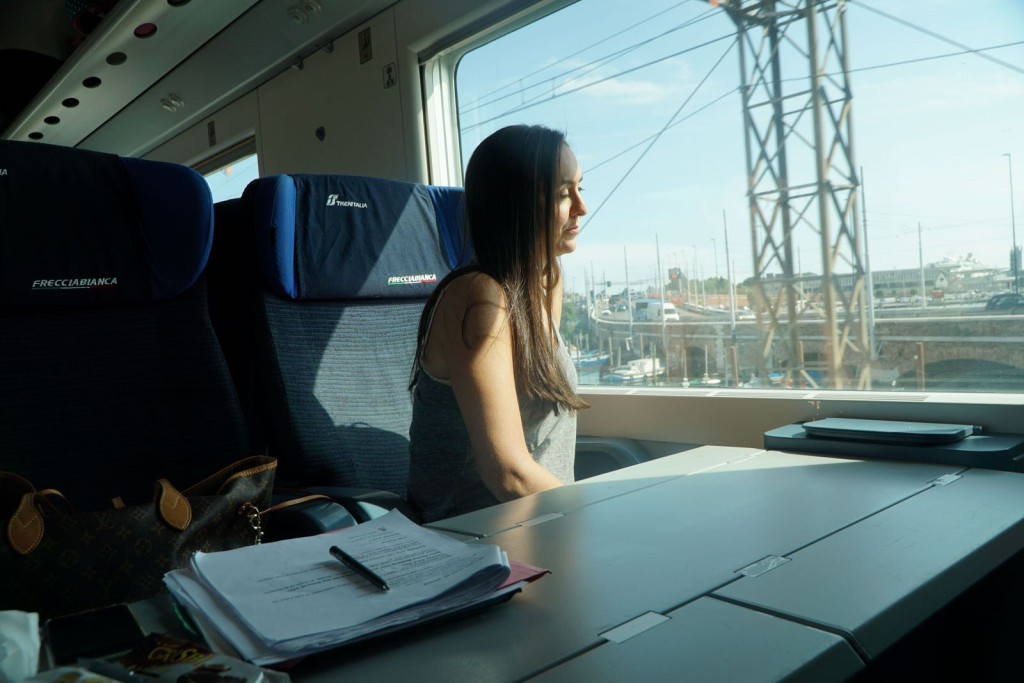
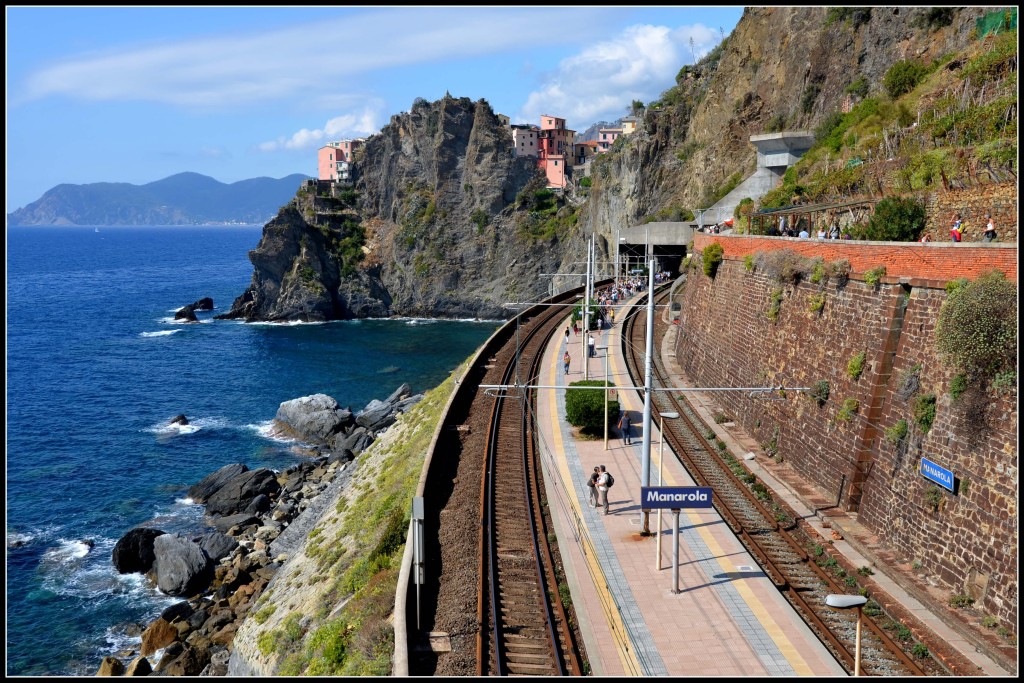



Great post!! I love rail travel and this sounds like a dream. Thanks for all the excellent tips. It was fun following along on social!
- July 17, 2015So happy you enjoyed. We’ll keep it up!
- July 19, 2015Great article! Sounds like an amazing trip!
- July 17, 2015It really was! Thanks for reading along!
- July 19, 2015This is so helpful! I never would have felt comfortable taking the train, in fact they past few times I went to Europe we took short flights but I would absolutely try the train after reading about your experience, it seems easy, civilized, and looks like a really comfortable way to travel. Thank you so much for sharing!
- July 17, 2015Yes, I promise. It’s totally do-able! You can definitely handle it!
- July 19, 2015Great tips and reminders to help make train travel in Europe a true #traveltherapy experience. I had no idea there were that many different seating options. Thanks for sharing!
- July 17, 2015Yes there is definitely something for everyone and every budget.
- July 19, 2015So many great travel tips! Looking forward to trying out Rail Europe my next time I am there!
- July 17, 2015Yes! Please let me know if you need any advice.
- July 19, 2015Such womderful information about travel by train. I went by train a long time ago and loved it. Now I would definitely,consider it again. Great helpful travel suggestions.
- July 17, 2015Absolutely! Hope you plan somewhere fun!
- July 19, 2015This is fabulous. I so wish I had this information prior to our family trip where I booked tickets from Paris to Avignon but somehow didn’t keep any records and we got on the train, with 4 kids, one in a stroller, piles of suitcases-only to find out that there are assigned seats. I had no records, I was a hot crying mess. I got some sort of ticket from the rail employee but they didn’t kick us off, thank God. I couldn’t figure out what the ticket was so I threw it away. I guess I’ll find out if I try to buy another one and I’m banned from Rail Europe!
- July 17, 2015Hahahaha that sounds like a nightmare! Yes; I would say the key is just doing all your research before and making sure you have every document. Glad they didn’t throw you off! Haha
- July 19, 2015We’re huge fans of Rail Europe! Fantastic article full of super useful tips - thanks for sharing!
- July 19, 2015What an amazing trip! The rail cars look very comfortable and I love all of the tips you provide in this article!
- July 19, 2015Thanks for the great travel tips! Incredible how easy and convenient it is to travel around Europe by rail. Can’t wait to book my next European adventure!
- July 20, 2015How exciting! Wish we were planning a return trip!
- July 22, 2015Glad I could help!
- July 29, 2015LOVED this post! I love the idea of traveling by train, and would love to plan a European vacation this way. Such great information!
- July 20, 2015Thanks happy you enjoyed!
- July 29, 2015Traveling by train in Europe is our favorite way to go too. I love your tips and am bookmarking this article for our future travel plans.
- July 21, 2015Thanks so much for your kind words!
- July 29, 2015Great tips! First class looks cozy! And what a great way to see Europe.
- July 21, 2015Here, here!
- July 29, 2015Living in Italy has made me loathe the train. Though it looks like you traveled on the Italo trains and not the regular Trenitalia trains. I’ve heard good things about Italo and from your photos, it sure looks a lot nicer than the regular trains - especially the regional ones which don’t even have air conditioning.
- July 21, 2015Oh that doesn’t sound fun. All the regional trains we took (luckily) had A/C. I would have melted otherwise haha in the summer!
- July 29, 2015Thanks for the tips! Travel is always so much more enjoyable when a little planning is done in advance. Although being stranded in the streets of an Italian city sounds romantic… It’s not. Trust!
- August 7, 2015So true, Michael!
- August 25, 2015This is so helpful!! Would you suggest using RailEurope over the individual country sites for booking tickets?
- February 3, 2016I think it really depends but I would check with Rail Europe first and compare offers.
- February 11, 2016